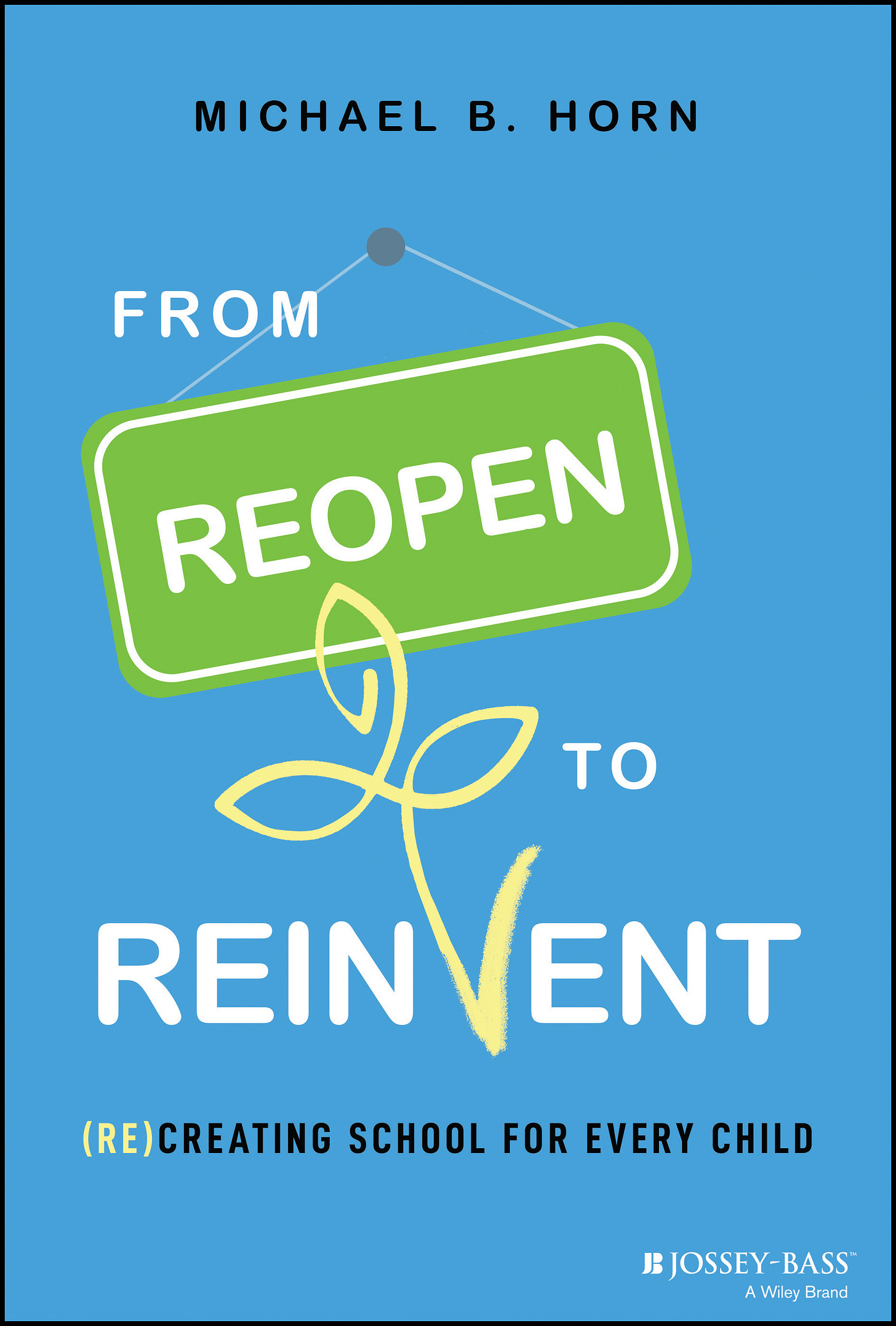Meritocracy and Exam Schools
Plus, More on Colleges Consolidating, Student Outcomes, and Free Speech on Campus
First, a brief plug. As readers of this newsletter know, I have a new book coming out in July titled From Reopen to Reinvent.
For those who pre-order the book, I’m offering a limited-time opportunity that expires July 13th when the book launches. If you’re interested in having me speak to a group (virtually or in-person), get in touch, as I’m discounting my usual speaker fees for those who make larger pre-order purchases. Whether you want to buy 15 books and have me join a virtual book club at your school or several hundred and have me join you in-person for a speech and meetings, send me a note and let’s talk.
You can pre-order the book from Amazon, from Barnes & Noble, or from Indiebound. And thank you.
Exam School Admissions and Meritocracy
If you live in New York City, San Francisco, Boston, or Virginia (and the DC Metro area), chances are high you’ve seen a lot in the news about so-called exam schools—schools like Stuyvesant or Boston Latin, Bronx Science, Thomas Jefferson (what’s often called TJ), Lowell, and the Illinois Math and Science Academy.
They’re famous, they’re selective, and they’re public schools.
These schools have been the subject of a lot of controversy over the past couple years.
Some have attacked the schools’ admissions policies by noting that they have disproportionately excluded Black and Hispanic students—and, it’s been noted, disproportionately included Asian American students. They’ve sought to change how they admit students by doing everything from barring the use of test scores, changing the formulas, using lotteries, and so forth.
The counter-response to these attempts has been strong, swift, and vociferous.
In our latest Class Disrupted podcast, Diane Tavenner and I dove into the fierce debate around selective exam schools as a case study to not only identify the problems in implementation that meritocracy-based ideas have created, but also to suggest solutions that retain and amplify the benefits of meritocracy.
As you’ll hear (or read, if you prefer the transcript), we’re ultimately uncomfortable with how the debate’s been framed—and think there’s a third way through it that could benefit many more students and not penalize those who benefit today from their admission to these exam schools. I’ll have more to say about this in the coming weeks, but for now, check out our podcast here. We’ll stay on our theme around meritocracy and education for our next couple podcasts as well, so don’t miss subscribing to Class Disrupted and tuning in.
Consolidating Colleges
Jeff Selingo and I explored the topic of college consolidation, specifically mergers and acquisitions, more deeply on the latest episode of Future U, which you can listen to here.
With a perfect storm of economic factors driving the narrative for mergers, acquisitions, and partnerships in higher education. John MacIntosh of SeaChange Capital Partners and Kasia Lundy of EY-Parthenon, both advisors to colleges and universities, joined us to explain the landscape and what's next for the sector.
This is a topic that I continue to give a lot of time and attention to, but I wanted to highlight one point that John raised. He said:
People forget that at least in the nonprofit context, in addition to their duty of care and loyalty, they have a duty of obedience to the mission that at least in theory, the trustee's obligation is with respect to the mission of the institution, not the continuation of the institution in any particular form or at all. The key is, to me, because this is so difficult is just try to put mission and students first in your mind.
John’s big takeaway? Trustees should be acting in the interests of students as they make these decisions. Listen to the podcast.
Student Outcomes
That segues naturally into my latest piece for Forbes, in which I detailed why Jobs for the Future is leaning into outcomes with its acquisition of the Education Quality Outcomes Standards Board that I cofounded. Read the piece here.
Free Speech and College Campuses
Finally, in my latest column for the New York Sun I waded into the free speech battles on college campuses and argued that it’s time law schools take a page from business schools and update their admissions process with an essay question about the First Amendment so they can admit students committed to the values undergirding American law. You can read the piece here.
As always, thank you for reading, listening, and writing.






I always learn something when I read Michael's posts.